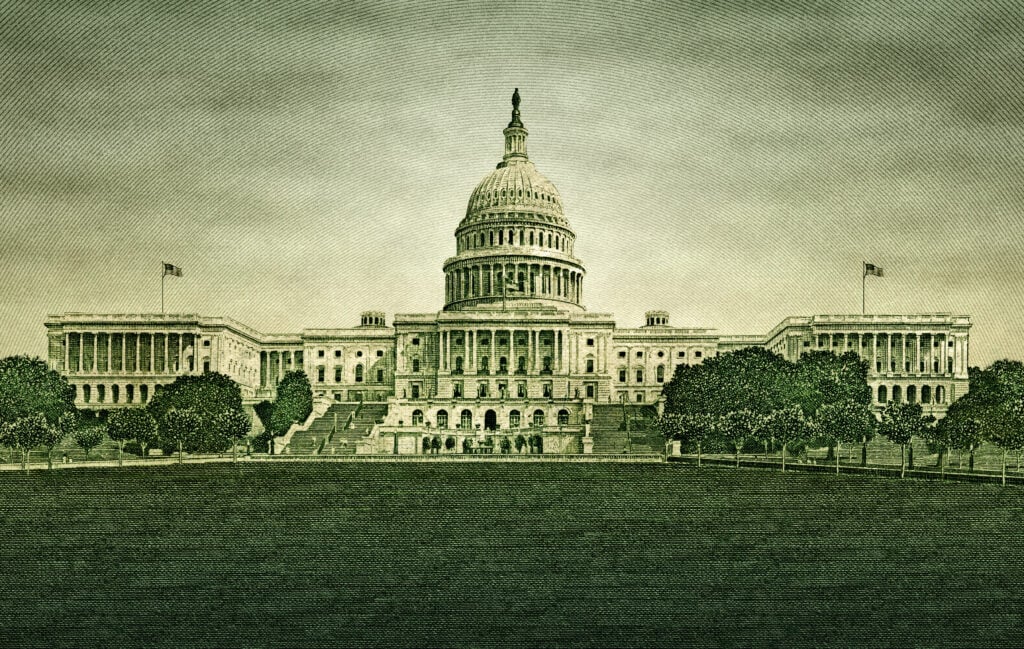The most effective way for Congress to improve the federal tax code would be enactment of the tax provisions included in the Build Back Better Act that passed the House of Representatives in November. Even if that happens, the Biden administration will need to address remaining problems in the tax code through regulations and executive orders. If Congress does not enact the reforms that the House passed, then Biden administration will have an even greater responsibility to act on its own shore up the tax system.
In many ways, the Biden administration is obliged to act. Tax legislation must be implemented through regulations written by the Treasury Department, and in many cases the legislation provides broad authority to Treasury to prevent individuals and corporations from avoiding taxes.
More importantly, the Trump administration issued tax regulations that went beyond its authority in implementing the Tax Cuts and Jobs Act. President Trump’s Treasury Department wrote regulations that provide even bigger tax breaks to corporations and the richest taxpayers than Congress intended when it wrote that legislation, as explained below. The Biden administration should issue new regulations to ensure that the law is being enforced properly.
Here are some important points to remember about the administration’s ability to address tax policy even when Congress is unable or unwilling to help.
1. The Biden administration can act without Congress to address problems with the tax code, but this is NOT a substitute for passing tax reforms included in the Build Back Better Act.
That bill, which the House passed late last year, does not include all the changes needed to achieve a fair tax code. But BBBA does raise nearly a trillion and a half dollars over a decade and more revenue through enhanced tax enforcement aimed at wealthy tax evaders. This cannot happen without legislation.
2. The Biden administration first needs to dismantle a procedural roadblock set up by the Trump administration that could slow down or halt new tax regulations.
The Trump administration left in place a trap that could ensnare any proposed regulations to address tax avoidance. At issue is President Clinton’s Executive Action 12866, which imposes strict cost benefit analysis requirements for new regulations. The regulation requires the government to assess whether the benefits to society of a proposed regulation outweigh the costs imposed on whoever is required to obey the regulation.
It was understood (as was the previous executive action on this topic) to exempt most tax regulations, an area where cost benefit analysis does not make sense. If a new regulation proposes to close a tax loophole, of course it will have a cost on people or businesses because the tax code requires people and businesses to pay taxes. But the cost-benefit analysis does not consider the benefit of the revenue raised by tax laws.
The Trump administration ended this exemption so that the requirement for cost benefit analysis now applies to tax regulations. As a result, tax regulations are reviewed by the Office of Information and Regulatory Affairs (OIRA), which is not equipped to consider the benefits of raising revenue fairly and adequately.
Any new regulations that the Biden administration could issue to fix problems in the tax system could be defeated by OIRA if the administration does not first undo this procedural roadblock.
3. The Biden administration can act on its own to close many tax loopholes because Congress provided the authority to do so through tax laws it has enacted.
Many Republican lawmakers claimed executive overreach when the Obama administration issued regulations to prevent corporations from using schemes to move profits through different countries to avoid taxes. President Obama’s actions addressed a sudden upsurge of corporations attempting to use inversions – mergers with much smaller foreign companies used to claim that the resulting company was “foreign” even though the ownership was mostly unchanged and the company was still managed and operating in the United States.
The laws on the books – the laws enacted by Congress and previous presidents – however, clearly gave Obama’s Treasury Department the power to do this. For example, one of the regulations enforces a statute that ends with: “The Secretary shall prescribe such regulations as may be necessary to carry out the purposes of this section, including regulations to prevent the avoidance of the provisions of this section through reorganizations or otherwise.” A corporate reorganization can involve transferring assets between related companies, merging, acquiring or consolidating corporations or changing the identity of a corporation – all things that the inverted companies in this situation were doing.
4. In some cases, new regulations are needed to shut down loopholes that were themselves created by badly written regulations.
Many tax loopholes were created or enlarged by regulations. In 2015, Sen. Bernie Sanders wrote a letter asking the Obama administration to use its authority to address half a dozen specific loopholes in the tax code. Many of these loopholes were created by regulations, including “check-the-box,” which made it much easier for multinational corporations to shift profits into tax havens (until the Tax Cuts and Jobs Act provided corporations with other paths for doing that).
After Sen. Sanders sent and published his letter, the top Republicans on the tax committees in the House and Senate (who at that time were Paul Ryan and Orrin Hatch) complained that the “Constitution grants Congress the sole power to lay and collect taxes.” They argued that addressing tax loopholes through executive action would “further the idea that, rather than working with stable rules of the road, tax and other laws will hereafter evolve according to the uncertain path of unilateral executive decisions followed by controversy, challenges, and mistrust.”
The argument made by the Republican tax writers is illogical. If a president creates (through regulations issued by the Treasury Department) a new tax loophole that Congress never intended, then surely a president can also direct the Treasury Department to issue regulations that close that loophole. It is inconsistent to have no complaints when regulations open new, unintended loopholes benefiting millionaires and corporations then to later claim that the constitution is under assault if the executive branch proposes regulations that would close those loopholes.
5. The Trump administration issued several regulations that exceeded its authority, providing corporations and wealthy individuals with even bigger tax breaks than were authorized under the 2017 tax law. At very least, the Biden administration should replace those regulations with ones that comply with the law.
Several legal scholars have said that regulations issued by Trump’s Treasury Department to implement the Tax Cuts and Jobs Act (TCJA) provided much more generous tax breaks than are allowed under that law. One of those scholars, Rebecca Kysar (who is now an official in the Treasury Department) listed astonishing examples of the Trump administration’s overreach in testimony before the House Ways and Means Committee in early 2020.
Banks Are Not Financial Services
The TCJA provides a 20 percent deduction for income from “pass-through” businesses but denies this break for “financial services.” In plain English, this means banks cannot take the deduction. Yet the Treasury Department’s regulations exclude taking deposits and making loans (what most of us would call “banking”) from the definition of “financial services.”
Celebrity Chefs Have No Reputation or Skill
The deduction is also barred for businesses whose principal asset is the “reputation or skill” of the owners or employees, but the examples provided by Treasury clearly indicate that a celebrity chef’s restaurant profits would qualify for the deduction.
Linens and Mattresses Are Permanent Improvements to Property
The TCJA provides various capital gains tax breaks for assets invested in designated “Opportunity Zones.” One way investors can meet the law’s requirements is to “substantially improve” property in an Opportunity Zone, which is defined as “addition to basis,” a term long used in tax law to refer to permanent improvements in property like replacing a roof on a building. The Treasury Department created a definition of this term that includes buying linens, mattresses, furniture and gym equipment.
These three examples – providing the pass-through deduction for banking and celebrity chefs and allowing linens to be counted as permanent investments for Opportunity Zones – must be addressed with new regulations from the Biden administration. This would be true even if Congress passes the tax provisions in the Build Back Better Act (BBBA), which does not touch upon the pass-through deduction or Opportunity Zones.
The TCJA also dramatically changed international corporate tax rules, and this is another area where the Trump administration issued regulations that gave away even larger tax breaks than the law’s drafters contemplated. Congress could address these by enacting the international corporate tax reforms that are included in the House-passed Build Back Better Act. If Congress fails to do so, this is another area that requires new regulations from the Biden administration.
Interest Payments Paid to Foreign Banks Are Not Interest Payments
The TCJA includes a provision called the Base Erosion and Anti-Abuse Tax (BEAT) that is supposed to stop foreign corporations from using interest payments and other payments from their US subsidiaries to strip profits out of the United States. But foreign banks like Credit Suisse and Barclays persuaded Treasury to create an exception that is not mentioned in the statute for the interest paid on loans they make to their U.S. subsidiaries to meet the requirements of federal banking regulation. Officials at the Joint Committee on Taxation reportedly said this exception created by Treasury could cost $50 billion over 10 years.
“High-Tax Exception” for Multinational Corporations Created Out of Thin Air
The TCJA exempts most offshore profits of American corporations from U.S. tax. Some particularly large offshore profits are supposed to be subject to U.S. tax, but at just 10.5 percent, half the 21 percent rate that applies to domestic profits. This is overly generous treatment of offshore profits, but the Trump administration managed to make it even more generous in some cases.
The initial understanding of the law was that U.S. taxes could apply to offshore profits when American corporations pay taxes to foreign governments at a rate of less than roughly 13 percent. (The rules allow companies to subtract 80 percent of whatever foreign taxes they pay from their U.S. tax bill, and 80 percent of 13 percent is roughly 10.5 percent.) But after the law went into effect, tax lawyers found that some companies paying foreign taxes at a rate above that were nonetheless required to pay U.S. taxes because of interactions with other arcane tax rules. The New York Times reported that, rather than asking Congress to fix what they viewed as a legislative mistake, the affected corporations, including Procter & Gamble, News Corporation, Liberty Mutual, Anheuser-Busch, Comcast, and others, took a shortcut, asking the Treasury Department to issue regulations interpreting the law to say something other than what it says.
Then Secretary Steve Mnuchin obliged and created a “high-tax exception” from taxes for offshore profits that does not exist in the statute. To do so, Mnuchin borrowed a definition of “high-tax”—a foreign tax rate of at least 18.9 percent—from an entirely different part of the law that was not meant to apply in this situation, according to legal scholars.
6. The regulatory process is stacked in favor of corporations and the wealthy, but that can change.
The Treasury Department is required to notify the public of proposed regulations and allow for public comment, which favors large business interests with the resources to hire teams of attorneys to track, analyze and provide commentary on the regulations. But, as Kysar explained in her testimony, in practice the system is even more biased in their favor because industry lobbyists with access to Treasury officials meet with them and make their arguments before the notice and comment period even begins. As the New York Times reports, Treasury officials met with industry lobbyists roughly ten times a week after TCJA was enacted.
This process is not transparent, and it is wildly unfair to ordinary Americans, who are not able to follow every regulatory change that might affect them and call a meeting with Treasury officials to demand the most generous interpretation of the law. But once regulations are finalized, ordinary Americans have no recourse. Federal courts would likely find that no one has the standing to sue to stop regulations that reduce tax bills for a select group of individuals or corporations.
The Biden administration has a chance to recalibrate the process to focus on ordinary Americans’ needs, tax law enforcement, and funding investments in the American people.





